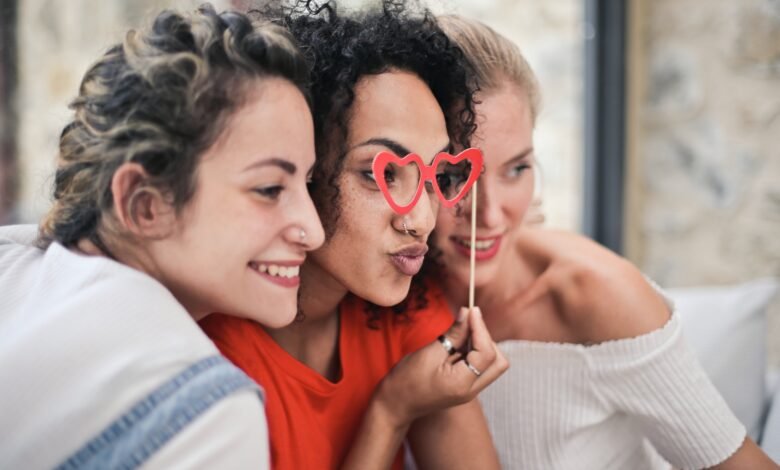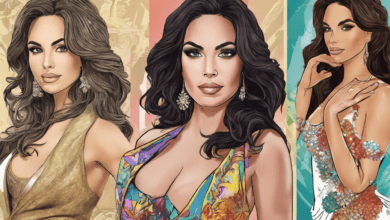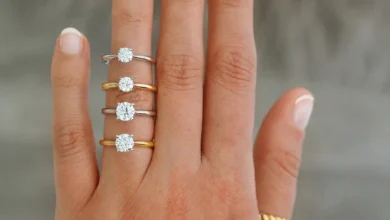The Rise of ‘Lesbify’: How Media is Embracing Lesbian Storytelling

Welcome to the captivating world of Lesbify – a rising phenomenon in media that is transforming the landscape of storytelling. Over the years, lesbian representation has evolved from mere tokenism to empowering narratives that celebrate love, identity, and unapologetic self-expression. In this blog post, we delve into how television shows, movies, books, and more are boldly embracing lesbian storylines like never before.
Get ready to be inspired by powerful characters who defy stereotypes and challenge societal norms as we explore the exhilarating rise of Lesbify.
Lesbify: An introduction
There’s no denying that the lesbian community has been underrepresented in media for a long time. To some, it feels as if we’ve been waiting forever for our moment on the big screen or in the pages of a book. But that’s changing, and fast.
In recent years, lesbian characters and stories have begun to appear more frequently in Hollywood films and television shows. Some credit Ellen DeGeneres’ hit sitcom “Ellen” for kickstarting this trend. The show features protagonist Ellen Morgan who is a lesbian woman and proudly so.
In 2013, “Orange is the New Black” became the first mainstream TV series to feature an openly Lesbian lead character. This year alone, we’ve seen “The Leftovers” include a gay love story between two men, “Transparent” depicts a transgender couple, and “The Crown” introduces us to Lady Diana Spencer’s secretive relationship with another woman.
This explosion of lesbian representation has not gone unnoticed by the general public. According to a recent study by GLAAD, 78% of Americans now know at least one LGBT person personally – up from 61% just five years ago.
And it seems that attitudes are starting to change too; according to Pew Research Center, 51% of millennials say homosexuality should be accepted by society, compared with just 32% of Gen Xers and 26% of Baby Boomers.
So why is all this happening? One reason may be that people are tired of seeing outdated portrayals of
Why lesbify now?
At first, lesbification was considered an insult. But today, it’s a term used to describe the way lesbian stories are told and celebrated in the media. Lesbians have always been creative and expressive, and their stories have always been important. But now, they’re getting the recognition they deserve.
There’s a reason lesbification is happening now: the world is changing. With more queer people coming out of the closet, there’s a greater demand for content that reflects their experiences. And these days, lesbians are no longer hidden in the shadows — they’re out there making waves and influencing culture.
So why lesbify now? Because it’s time for lesbian stories to be heard and seen — and appreciated for all they are.
How lesbify differs from other LGBT narratives
Lesbian and bisexual women have long been sidelined in mainstream media narratives, in favor of more commonly accepted narratives of gay and transgender people. However, there is a growing trend in media and popular culture toward lesbian representation, often characterized as “lesbifying.”
Lesbian representation can take many forms, from television shows featuring strong female characters (e.g. “Orange Is the New Black”) to movies that focus on romantic relationships between women (e.g. “The Fault in Our Stars”), to depictions of lesbian life in general (e.g. “Our Lips Are Sealed”). While all of these stories are important, lesbification is particularly relevant to young people who are just starting to explore their own sexuality and gender identity.
Lesbian visibility has undoubtedly helped reduce discrimination faced by LGBT people, but it has also created new challenges for lesbians and bisexual women. For example, some people may perceive lesbians as being promiscuous or sexually aggressive, which can make them vulnerable to abuse or harassment.
In addition, given the prevalence of heteronormativity in society, many lesbians find it difficult to find work or social opportunities that reflect their true identity.
Lesbify in popular media
Since the 1970s, there has been a rise in lesbian representation in popular media. Shows like “The L Word” and “Orange is the New Black” have helped to normalize and celebrate lesbian relationships. While these shows are few and far between, they have paved the way for other channels to start airing more inclusive content.
One such channel is Netflix. Currently, they are airing a show called “Queer Eye.” This show features five gay men who help straight people improve their lifestyles. One of the stars of the show is Karamo Brown, who is openly gay. Brown has spoken about how important it is for more shows like this to be aired on television.
“There’s no reason that somebody should not see themselves represented in popular culture,” Brown said in an interview with The Advocate. “That’s very important to me as an artist and as someone who wants to see humanity represented in its best light.”
While many networks are starting to air more inclusive content, there is still room for improvement. For example, Fox News recently canceled a show called “Rosewood.” The show was supposed to focus on a group of lesbians living together in Miami Beach. However, after gaining criticism from conservatives, Fox ended up canceling the show before it even aired.
Conclusion
It seems as though lesbian storytellers are finally getting the recognition they deserve. With more and more mainstream media outlets recognizing the importance of lesbian storytelling, it’s clear that lesbian culture is here to stay and that audiences everywhere will continue to be drawn in by its unique charm.
As long as there are Lesbian TV shows, Lesbian films, and Lesbian books being published, we can be sure that lesbification (or any other form of LGBTQ+ representation) will only continue to grow in popularity. Thanks for reading!




